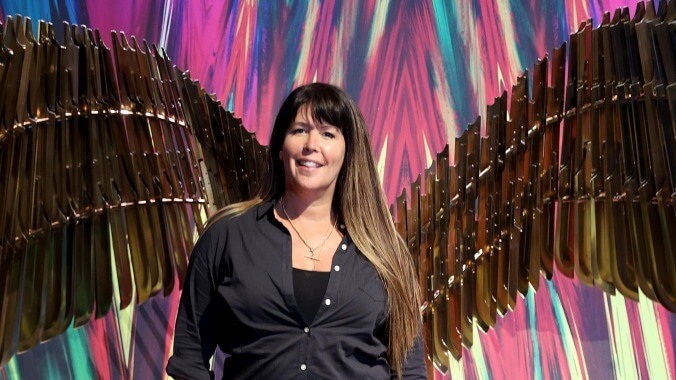Patty Jenkins calls Wonder Woman 1984's HBO Max launch "heartbreaking"
The film's hybrid launch, which saw it bring in well under its $200 million budget at the box office, was "the best of a bunch of very bad choices."

Patty Jenkins has spoken out today about the release of her superhero sequel Wonder Woman 1984, calling the film’s hybrid rollout—which placed it simultaneously on both HBO Max and in theaters—“heartbreaking,” and, “the best choice of a bunch of very bad choices.” Jenkins made her comments in an atmosphere that might comfortably be described as “preaching to the choir,” speaking at this year’s CinemaCon, the annual meeting for the owners of large, enclosed boxes that people pay to be crammed into alongside more than a hundred other people, all breathing on each other, for hours at a time. (Or “movietheaters,” as they were known in the Before Time.)
Jenkins is, of course, only the latest Hollywood director to speak out about the sanctity of the theatrical window, that mutually agreed-upon span of time between when a film hits theaters and when it arrives on home video. Said window has had a number of fairly hefty bricks thrown through it over the last few years, as continuing fears about the COVID-19 pandemic continue to make the prospect of public screenings of movies a logistical and medical nightmare. Arguments about the hybrid release of Black Widow are at the heart of Scarlett Johansson’s current legal battles with Disney, and multiple directors—including Christopher Nolan and Denis Villeneuve, whose Dune is scheduled to be sacrificed to the HBO Max gods in October—have expressed their displeasure with having their Big Movies moved to the small screen.
Jenkins’ position is notable because she was, at least, reportedly pretty well compensated for her version of the shift, which caused Wonder Woman ‘84 to arrive on the streaming service late last year. Both she and Gal Gadot had their deals with Warner Bros. re-negotiated when the hybrid move was decided, ensuring that any damage the HBO Max debut did to the movie (which did, indeed, massively underperform, both critically and financially) wouldn’t cost them the kind of 9-figure numbers that Johansson’s lawsuit is citing.
That being said, Jenkins still isn’t happy to have had all her work crammed onto people’s phones and TVs: “It was such a dark time,” she noted, in reference to the effect of the COVID-19 pandemic on the release of her superhero movie. “I don’t think it plays the same on streaming. I did practical effects and shot it in Imax. It was painful. I’m not a fan of day-and-date and I hope to avoid it forever. … I make movies for the big screen experience.”
This, obviously, got a big round of applause from the people who own the aforementioned big screens—as did similar statements from other industry figures in support of the theatrical window, come hell or high viral loads.